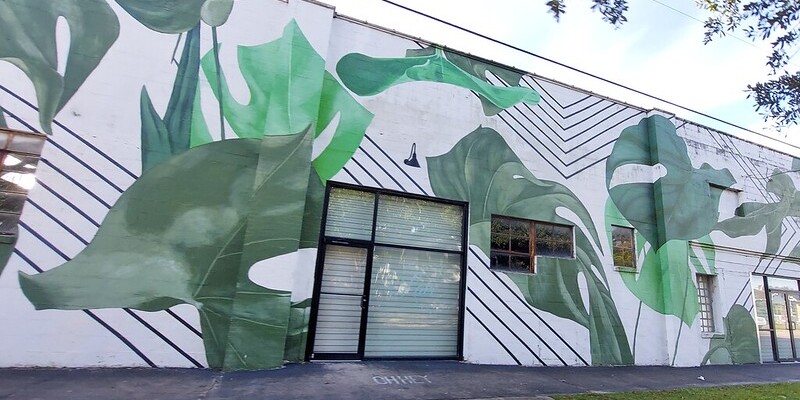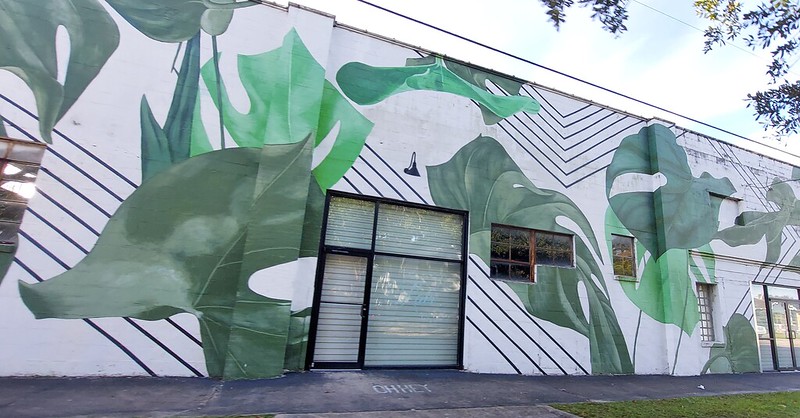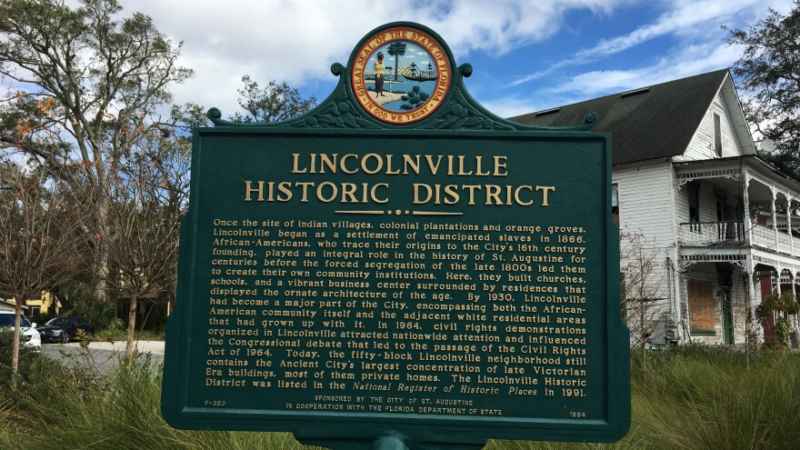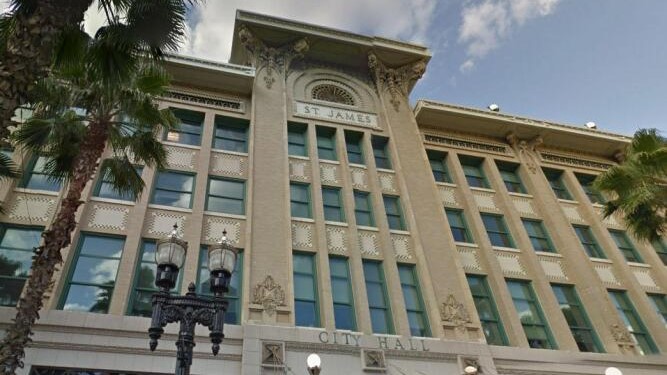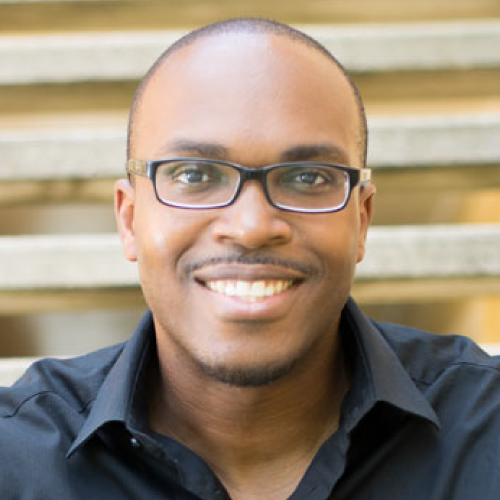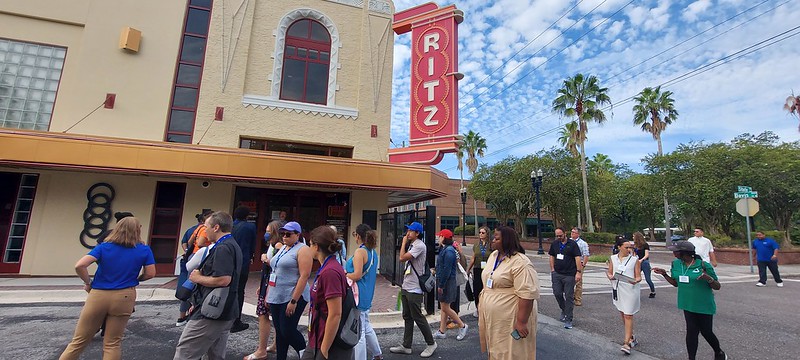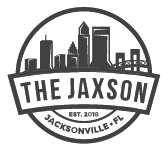
An acronym for the “Corner of Roselle and King,” the CoRK Arts District is a network of once abandoned warehouses and underutilized spaces that have become art studios, galleries and production spaces along the CSX A-Line in Riverside.
The district dates back to the late 19th century when the Jacksonville, Tampa and Key West Railway was completed between Jacksonville and Palatka in 1881. Later becoming a part of Henry B. Plant’s Plant System, this railroad would eventually bring an end to the St. Johns River steamboat era. Following the Great Fire of 1901, this stretch of the railroad line became an early location for planing mills and other forms of industry on the outskirts of Downtown Jacksonville.

In 1985, Riverside became the first neighborhood in Jacksonville to be listed on the National Register of Historic Places. While that effort did not focus on the industrial corridor adjacent to the neighborhood, several warehouses there have their own interesting historical stories to share. Here are five stories connected to Riverside’s industrial sites and history.
1. A piece of the famed Biltmore Hotel

Bold City Brewery was Jacksonville’s first modern craft brewery when it opened its doors at 2670-7 Roselle St. in 2008. However, the industrial building it occupies has a much longer history. The complex was originally built for the Schell-Sasse Manufacturing Co. during the 1920s. Schell-Sasse manufactured millwork, sash and doors for a number of clients, including George E. Merrick and his luxurious Biltmore Hotel. Located in Coral Gables, the Biltmore was the tallest building in Florida when it was completed in 1926.
After Schell-Sasse, the warehouse complex housed Tinsley White Rucker IV’s Dixon Powdermaker Furniture Co. Born in Warrenton, Georgia, Rucker graduated from the Massachusetts Institute of Technology in 1931 with a degree in building construction. His Dixon Powdermaker was considered to be one of the finest furniture manufacturers of its day, making products that were 100% wood. Today, the former Schell-Sasse industrial complex is home to a number of businesses, including Bold City Brewery, Just Brew It and Cafaro Creations, LLC.

2. Pepsi was bottled here

Located at the intersection of Roselle and King streets, 648 King St. was the Thomas Beverage Co. between 1933 and 1946. Operated by Lois H. Thomas, Thomas Beverage was a woman-owned soft drink bottler. Thomas had operated the Jacksonville Ne-Hi Bottling Co. at 651 Stockton St. during the 1920s.
In 1946, the property became the Pepsi-Cola Bottling Co. of Jacksonville under the management of W. Gwyn Thomas. Pepsi-Cola operated the warehouse as a bottling plant until 1957. After Pepsi moved on, the building was used as a cold storage warehouse by the Deal-Warren Refrigeration Co. Today, the former Pepsi-Cola bottling plant is home to several smaller businesses including Blue Buddha Exotic Foods, Inc., Cool Stuff Vintage and Flaire Antiques.

3. Matchbooks and beer made here before art

Established in 2011, the CoRK Arts District is made up of over 80,000 square feet of warehouse space with artist studios and galleries. Its mission is to support artists in an environment that’s conducive to creativity and collaboration.
The oldest CoRK warehouse, at 2689 Roselle St., was built in 1926. At the time, it was occupied by the Atlantic Match Co., a manufacturer of matchbooks. New Jersey-based Peter Ballantine & Sons was another early tenant. At its height, Ballantine was the fourth-largest brewer in the country. A third tenant, New York-based Francis H. Leggett & Co. was internationally known for tea leaves. An abandoned rail siding through the CoRK property once shipped beer for Peter Ballantine & Sons and soft drink products for the nearby Pepsi bottling plant. Other previous tenants include the Shaver Brothers canning factory, Florida Electric Supply Co. and State Beverage Distributors.

4. A sacrifice to the civil rights movement

The building at 660 King St. was a dairy plant built during the 1930s for the Dinsmore Dairy Co. Established by V.C. Johnson, the Dinsmore Dairy Co. was known for its Guernsey Cows. “Johnson’s baby milk” was advertised as the cleanest milk for infants, with the lowest bacteria count. Johnson was a personal friend of Dr. Martin Luther King, Jr. and openly pro-desegregation. During the 1950s, the family was involved with the NAACP, SCLC, the Human Relations Council, Urban League and the Eartha White and Clara White Mission.
In 1959, as a result of its owners’ being prominent white supporters of civil rights in Jacksonville, the Dinsmore Dairy was forced out of its retail business by the Ku Klux Klan and the White Citizens’ Councils. Borden Dairy Co. took over the business before closing the plant in 1991 as part of a failed restructuring plan. Today, Leggett Heating & Air Conditioning Inc. occupies the former Dinsmore Dairy site.
5. The world’s third-largest dairy company

The Reinhold Ice Cream Co. was founded by Paul Reinhold in Oakmont, Pennsylvania, in 1916. During the Great Depression, Reinhold began implementing innovative techniques to freeze ice cream at his factory. In 1931, he was approached by J.C. Penney, founder of the department store chain and Clay County town of Penney Farms, to lead an ice cream and dairy operation in Florida. As a result, Reinhold moved to Jacksonville to run the new company, named in honor of Penney’s prized Guernsey bull, Foremost. The main plant was located along a streetcar line at 2903 College Ave. in Riverside.

By 1955, Foremost Dairies had grown to become the third-largest dairy company in the world, with $400 million in annual sales. The Riverside ice cream and milk processing plant was eventually acquired by Louisville-based Flav-O-Rich and ceased operations in 1991. While the former milk processing factory still stands, portions of the former industrial complex are being developed into housing and self-storage.


